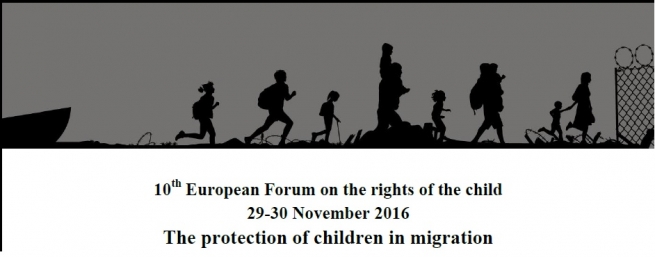Children represent a significant proportion of migrants and refugees. At least 1 in 3 people arriving to Greece by sea in 2016 were children. In the same year, the number of unaccompanied children arriving to Italy has doubled compared to 2015. However, actions for children have remained uneven and insufficient. Responses to migration cannot be effective or protect children unless they systematically take into account their best interests and specific needs.
A broad range of monitoring bodies and civil society organisations have been calling for a comprehensive and rights-based approach to all refugee and migrant children for several years. The initiative taken by the European Commission, and in particular Commissioner Jourova, to put a focus on the rights of all refugee and migrant children is timely and essential. Governments re-committed to protect the rights of all refugee and migrant children at the UN High-level Summit of 19 September 2016. The growing challenges facing refugee and migrant children across Europe now require renewed political commitment and much more action at European level.
Some of the rights violations that refugee and migrant children face daily en route to, and within, the EU include lack of safety, food and access to services, such as health care and shelter; separation from their parents; extortion, violence and exploitation as well as injury and death. Across Europe, we are continuously witnessing the harsh conditions under which children have to survive, deprived of basic rights such as health care, education, birth registration and housing, as well as due process and justice in immigration and asylum procedures, legal representation, and effective guardianship for unaccompanied children. Children may face such challenges when they are unaccompanied, separated or with parents, and at different stages of immigration and asylum procedures and residence. Children themselves confirm that education, information about their rights and insecurity about their residence status are among their key concerns.
We urge EU leadership and immediate action, in cooperation with civil society, in the following priority areas:
1. Adoption of an EU Action Plan on all refugee and migrant children
2. Reforming the asylum legislation
3. Prioritising children in all migration and asylum policies
4. Funding for strengthening child protection systems
5. Addressing refugee and migrant children in all areas
6. Protecting children across borders
7. Ensuring and using quality data and evidence.
The statement is available here.


